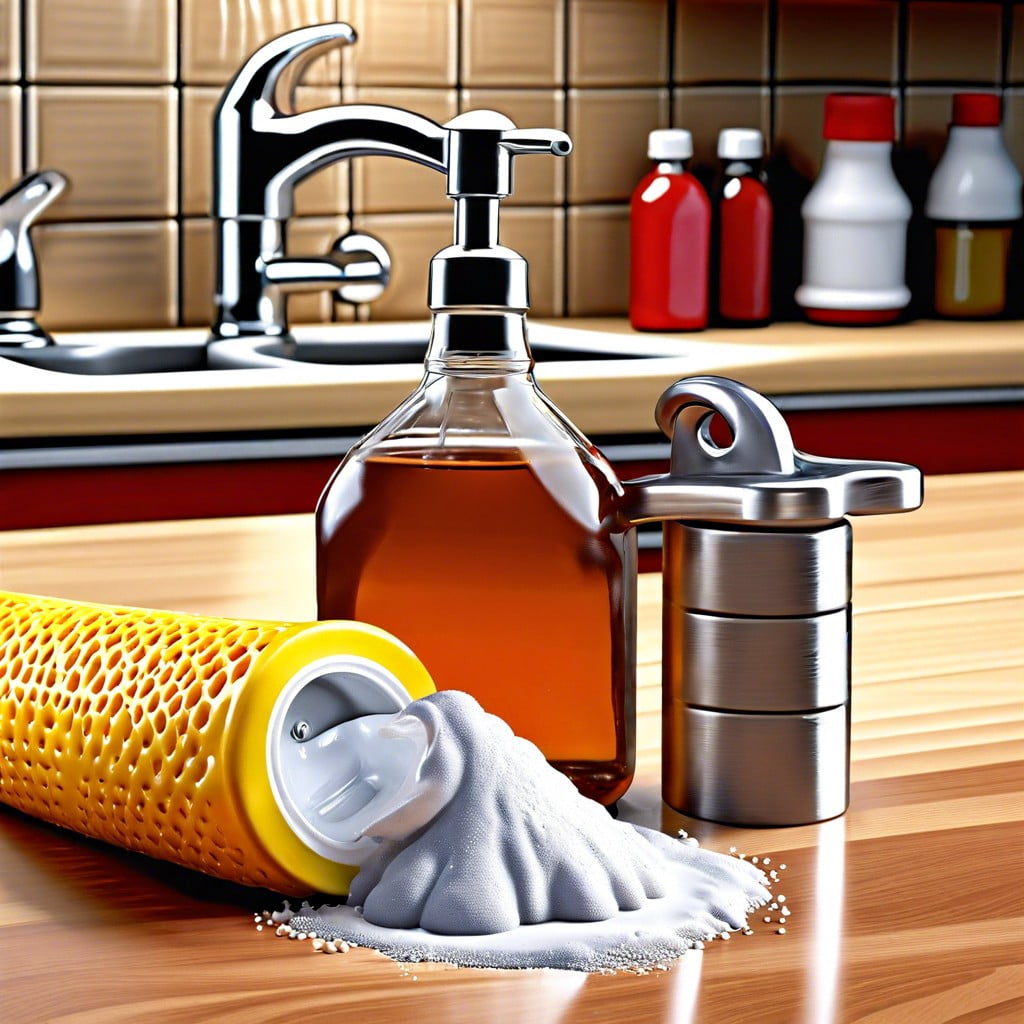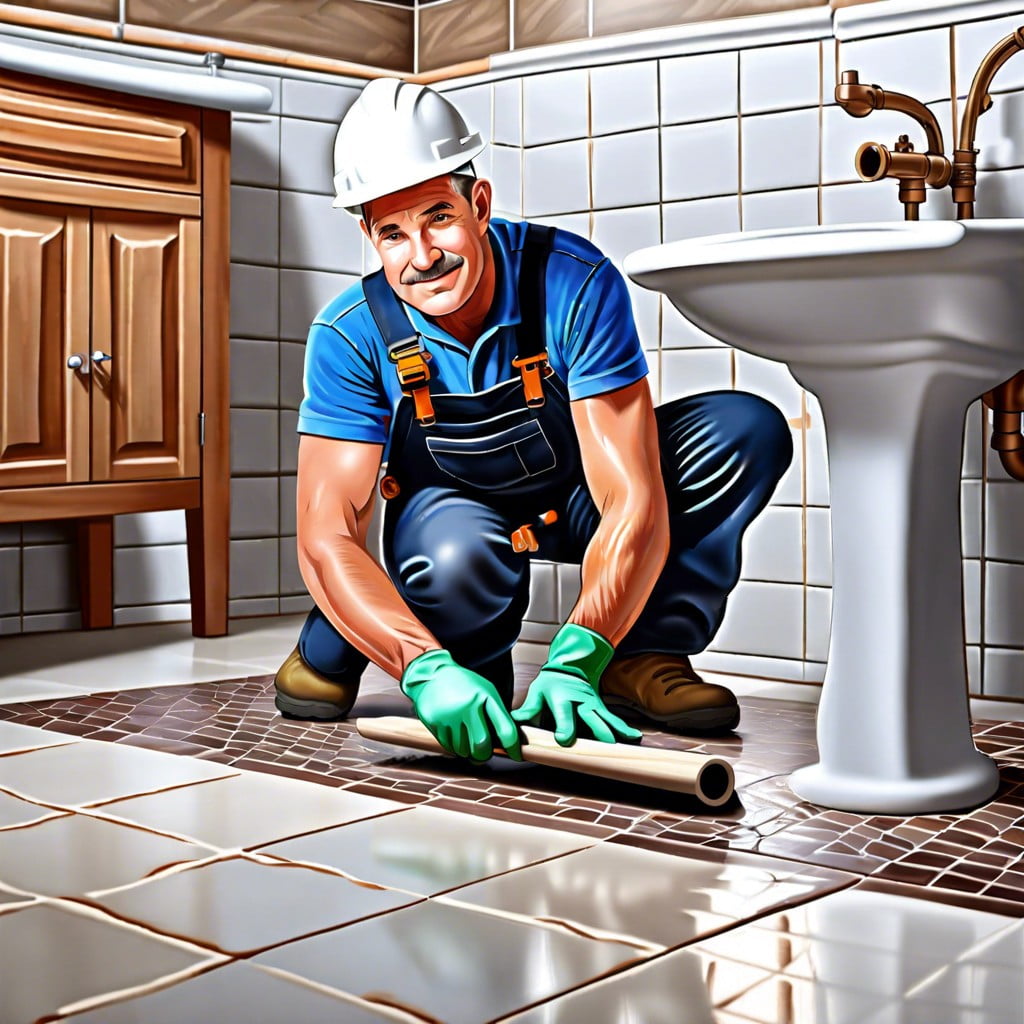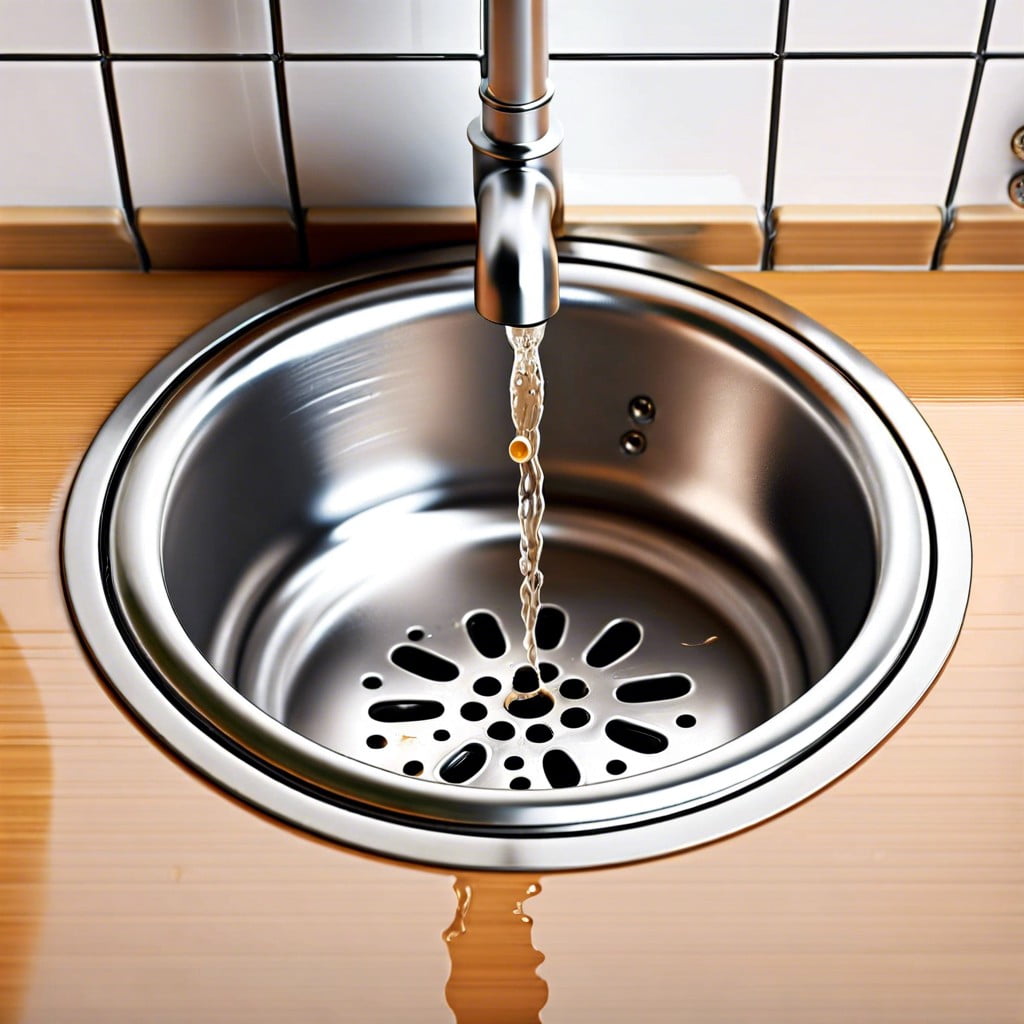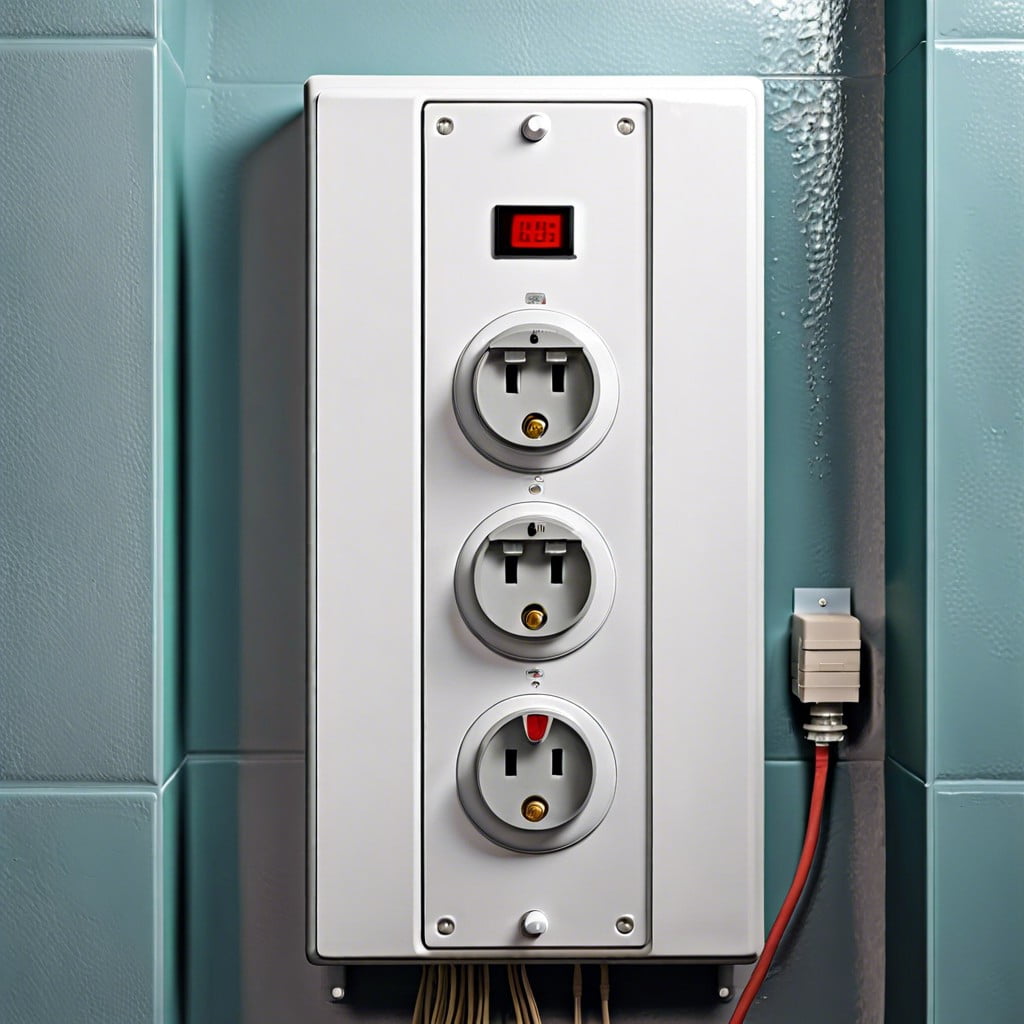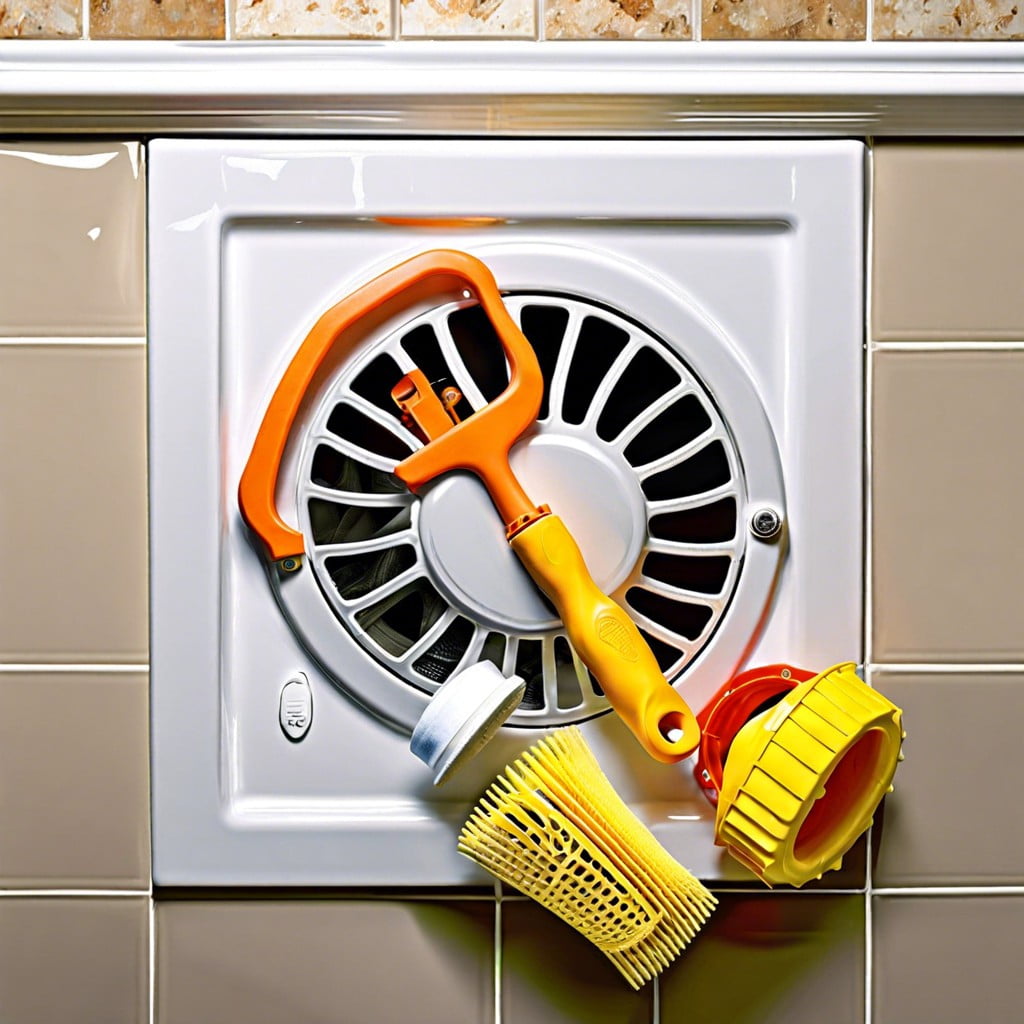Last updated on
This article provides a straightforward, step-by-step approach to effectively get rid of stubborn mold in your shower.
Key takeaways:
- Use vinegar, baking soda, hydrogen peroxide, or tea tree oil for natural mold removal.
- Take safety precautions with protective gear and proper ventilation.
- Prevent mold growth by ventilating, drying, and sealing grout lines.
- Hire professionals for persistent mold issues and improve ventilation.
- Use diluted bleach, hydrogen peroxide, vinegar, or Moldex Mold Killer to dissolve mold in showers.
Identifying Mold in Your Shower
Mold often manifests as dark spots or patches, varying in color from black and green to red or even white. Pay attention to corners and crevices, places where moisture lingers. An earthy, musty smell can also hint at hidden mold colonies behind tiles or walls.
It’s crucial to distinguish between mold and mildew, with the latter being a surface-level issue that’s easier to address. Mold’s deeper invasion requires more than a superficial cleanse. Spotting differences in texture can be a giveaway too; mold tends to be fuzzy or slimy, signaling its pervasive nature.
Safety Precautions Before Cleaning Mold
Before embarking on the conquest to banish mold from your shower, gear yourself up. Protective eyewear avoids irritants assaulting your vision, while gloves shield your hands from harsh cleaning agents and mold spores.
Ensuring ventilation is crucial; open windows or use an exhaust fan to circulate air and help clear fumes and spores. If you’ve got respiratory issues or the mold situation seems like a miniature ecosystem, a mask is wise—it blocks airborne spores from your lungs.
Moreover, if you’re delving into strong chemicals, keep your space safe for others by clearly marking the area and keeping it off-limits during the cleaning spree. Remember, safety is not just an afterthought; it’s the foundation for effectively tackling mold in your shower.
Natural Mold Removal Solutions
Vinegar’s acidic nature makes it a potent adversary for mold. Apply it undiluted to affected areas, let it sit for an hour, then scrub and rinse.
Baking soda, dissolved in water or combined with vinegar, creates a non-toxic scrub that’s gentle on tiles but tough on mold. Scrub, then rinse thoroughly.
Hydrogen peroxide, another safe alternative, can be sprayed directly onto mold. Wait for it to bubble, indicating its interaction, then scrub and rinse.
Tea tree oil, while pricier, is a powerful, natural fungicide. Mix a teaspoon with a cup of water, spray it on, wait, and then wipe away for an eco-friendly option.
Note that while these natural solutions are effective for small-scale issues, recurring or extensive mold may require professional assessment.
Preventing Mold Growth in Showers
Mold thrives in damp environments. Taking proactive steps can save you from the elbow grease of future scrubbing sessions. Consider the mantra ‘ventilate, dry, and shield’.
Firstly, adequate ventilation is paramount. Run the bathroom exhaust fan during and for 30 minutes after a shower to expel the moisture. If a fan isn’t an option, crack a window.
Secondly, a squeegee becomes your best friend. A quick wipe down of the walls, shower door, and floor after use can dramatically reduce the moisture that mold spores crave.
Finally, sealing grout lines annually with a waterproof sealer blocks moisture absorption. Additionally, swapping out a bar soap with a liquid or gel can reduce soap scum, which is a mold feast waiting to happen. Remember, a little prevention goes a long way in maintaining a clean, mold-free shower.
Remediation for Persistent Mold Issues
When the usual scrubbing, bleaching, and natural remedies fail to eradicate mold, it’s time to consider stronger measures. Persistent mold may indicate deeper issues, such as excessive moisture or water damage, which simple surface cleaning cannot rectify. It’s essential to address these underlying problems to prevent health risks and structural damage.
Hiring a professional mold remediation service is often the safest and most effective option. Experts have the proper equipment, such as HEPA vacuums and commercial-grade dehumidifiers, to thoroughly remove mold and its spores from your bathroom.
Additionally, consider improvements to your bathroom’s ventilation system. An adequately installed and vented exhaust fan greatly minimizes humidity, curtailing mold growth. For a more comprehensive approach, waterproofing measures like sealing tiles and grout can provide long-term solutions, preventing moisture from seeping into places that are prime real estate for mold colonies. These strategic interventions are investments in the health of your home and its occupants.
FAQ
How do I get rid of black mold in my shower?
To eliminate black mold in your shower, mix one teaspoon of bleach per cup of water in a spray bottle, spritz the affected area, wait for several minutes, and scrub the area with a brush or sponge.
What dissolves mold in shower?
A solution of diluted chlorine bleach, undiluted hydrogen peroxide, or a combination of distilled white vinegar and dishwashing liquid effectively dissolves mold in showers.
Is bleach or vinegar better to kill mold in shower?
In my opinion, vinegar is a superior option for eliminating shower mold, especially on porous surfaces, as it can penetrate deeply and kill approximately 82% of the mold, providing a safer and equally effective solution than bleach.
What is the best shower mold cleaner?
The Moldex Mold Killer, an EPA-certified solution free of harsh chemicals like bleach and ammonia, rates as the top shower mold cleaner due to its effectiveness and ease of use on most washable surfaces.
Can a daily shower spray prevent mold build-up?
Yes, a daily shower spray can significantly reduce mold build-up by inhibiting the growth of fungus and bacteria.
How effective are natural solutions, like tea tree oil, at preventing shower mold?
Natural solutions like tea tree oil can be effective in preventing shower mold due to their anti-fungal properties; however, they might not be as powerful or quick-acting as chemical-based solutions.
Are there certain materials used in showers more resistant to mold than others?
Yes, non-porous materials like glass and glazed tile are more resistant to mold growth in showers compared to porous materials such as untreated wood and grout.
Recap
